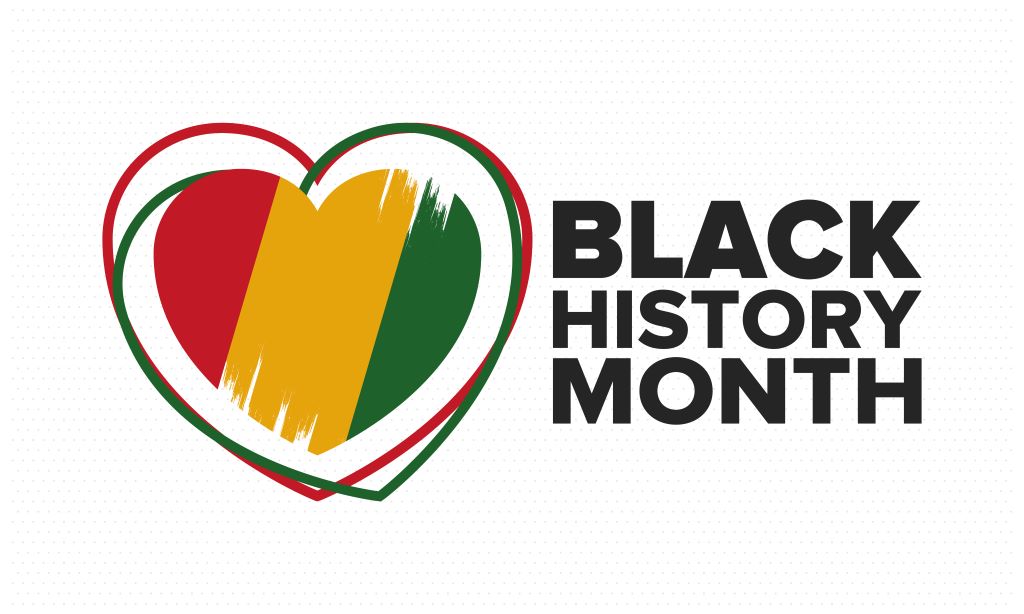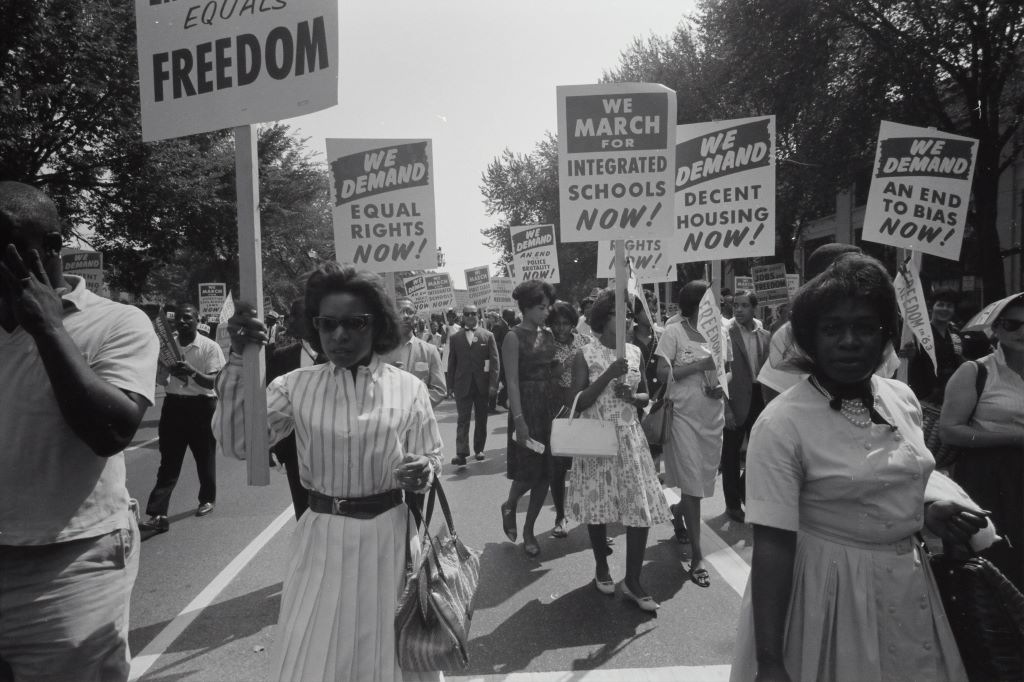February marks a significant time in the United States—Black History Month. It’s a time to reflect on the contributions, struggles, and also triumphs of the Black community throughout history. One particular aspect that stands out is the evolution of Black-owned banking institutions. These have played a crucial role in not only empowering the Black community, but also creating economic independence. In today’s blog, we’ll cover some of the most popular questions about Black History Month. We’ll also touch on how Black-owned banking institutions have evolved and impacted black communities across the country. So, let’s begin with why Black History Month is celebrated!

Why is Black History Month Celebrated?
People celebrate Black History Month to honor and recognize the contributions, achievements, as well as the history of African Americans. This month serves as a dedicated time to acknowledge the role that Black people and communities have played throughout history, often in the face of adversity.
The main goals of Black History Month include promoting awareness, understanding, and appreciation of the rich heritage and cultural diversity within the Black community. It’s an opportunity for people of all backgrounds to learn about the struggles, achievements, and contributions of African Americans in various fields, such as science, literature, art, politics, and civil rights. The celebration also aims to foster unity, combat stereotypes, and encourage inclusivity and equality.
Now that we’ve covered why Black History Month is celebrated, let’s explore who started this celebration and how it came to be.
Who Started Black History Month?
Historian, Carter G. Woodson, often referred to as the “Father of Black History” started Black History Month.* Dr. Woodson recognized the need for a dedicated time to celebrate and acknowledge the achievements, contributions, and history of African Americans. He felt this was especially important as mainstream historical narratives often either neglected or misrepresented these elements.
In 1926, Dr. Carter G. Woodson and the Association for the Study of Negro Life and History, established “Negro History Week”. The celebration gained popularity over the years. Then in 1976, President Gerald Ford officially recognized and expanded Negro History Week into Black History Month.
Carter G. Woodson’s initiative aimed to provide a dedicated space to highlight the contributions of African Americans. His goal was to foster awareness, education, and also appreciation for Black history. Today, Black History Month is observed not only in the United States but also in other countries around the world.
Why is Black History Month in February?
Black History Month is in February for both historical and symbolic reasons. The birthdays of two people who played significant roles in African American history was the driving force in making the decision to have Black History Month in February:
- Abraham Lincoln (February 12): As the 16th President of the United States, Abraham Lincoln signed the Emancipation Proclamation in 1863. The executive order declared that all slaves in Confederate-held territory were to be set free. This was a big step toward ending slavery in the United States.
- Frederick Douglass (February 14): Frederick Douglass was a well-known abolitionist, social reformer, and writer. He escaped from slavery and then became a leading figure in the anti-slavery movement. His contributions to the cause of emancipation and civil rights are highly important.
By choosing February and incorporating the birthdays of Lincoln and Douglass, the founders wanted to highlight the historical importance of both these events as well as the individuals, focusing on the ongoing struggle for civil rights. This month provides a dedicated time for reflection, education, and celebration of the achievements and contributions of African Americans throughout history.

Famous Black Historical Figures
There are many important Black historical figures who have made big contributions in several areas. The following are some of the most popular black historical figures:
- Martin Luther King Jr. (1929–1968): A prominent leader in the American civil rights movement. MLK advanced civil rights using nonviolent civil disobedience.
- Rosa Parks (1913–2005): Known as the “mother of the civil rights movement”. Parks played a pivotal role in the Montgomery Bus Boycott by refusing to give up her bus seat to a white passenger.
- Malcolm X (1925–1965): A human rights activist and Muslim minister who advocated for Black empowerment, self-defense, and equality during the civil rights era.
- Harriet Tubman (c. 1822–1913): An escaped slave who became a “conductor” on the Underground Railroad, helping hundreds of enslaved people reach freedom.
- Maya Angelou (1928–2014): A renowned poet, memoirist, and civil rights activist whose work, including “I Know Why the Caged Bird Sings,” has left a lasting impact.
- Barack Obama (b. 1961): The first African American President of the United States, serving two terms from 2009 to 2017.
- Nelson Mandela (1918–2013): An anti-apartheid revolutionary and political leader who became the first Black president of South Africa.
- Thurgood Marshall (1908–1993): The first African American Supreme Court Justice. Marshall was a lawyer in the landmark case Brown v. Board of Education.
- Katherine Johnson (1918–2020): A mathematician and physicist whose calculations were critical to the success of the early U.S. space missions, featured in the movie “Hidden Figures.”
Now that you’re up to speed on the history and background of Black History Month, let’s explore how Black-owned banking institutions have evolved and impacted Black communities across the country.
The Roots of Black Banking: A Historical Perspective
In the late 19th century, racial segregation was everywhere in America’s society. Faced with limited access to financial services due to discriminatory practices, Black individuals and communities took matters into their own hands. Freedman’s Savings and Trust Company was the first black-owned bank, established in 1865.* Freedman’s was the first bank to provide financial services to newly emancipated slaves. Although the Freedman’s Bank faced challenges and ultimately closed, it set the foundation for future endeavors.
The Rise of Independent Black-owned Banks
The early 20th century witnessed the rise of independent Black-owned banks. These institutions aimed to address the financial needs of their communities. One notable institution is the Citizens Savings Bank and Trust Company in Nashville, founded in 1904.* These banks not only provided essential banking services but also created economic stability for Black-owned businesses and families.

Weathering the Storm: The Great Depression and Beyond
Black-owned banks faced major challenges during the Great Depression, yet many persevered. The strength and resilience of these institutions became clear as they continued to support their communities through economic hardships. As the civil rights movement grew popular in the 1960s, Black-owned banks played a large role. These institutions financed both businesses and initiatives that contributed to the fight for equality.
The Modern Era: Adapting to Changing Times
In recent decades, Black-owned banks have adapted to the evolving financial landscape. Both technology and innovation have become crucial tools in expanding outreach and providing convenient services. Institutions like OneUnited Bank and Industrial Bank continue to uphold the legacy of their predecessors. They do this through community development, financial education, and also homeownership.
Fostering Economic Independence
But the impact of Black-owned banking institutions goes beyond providing just traditional banking services. These institutions actively contribute to the economic independence of the Black community by the following:
- Entrepreneurial Support: Black-owned banks have been vital in supporting Black entrepreneurs, offering both loans and financial resources to help businesses thrive.
- Homeownership Opportunities: Through mortgage lending and community development initiatives, Black-owned banks have played a key role in increasing homeownership among African Americans, which has also allowed for wealth creation.
- Financial Education: Many Black-owned banks prioritize financial literacy programs. These programs give individuals both the knowledge and skills needed to make informed decisions about their finances.
Looking Forward: The Continuing Legacy
As we celebrate Black History Month, we must acknowledge the significant role that Black-owned banks have played in empowering the Black community. Their legacy continues, reminding us that economic independence is not only a goal, but a journey built on resilience, determination, and community strength.
The evolution of Black banking institutions shows the strong spirit of a community that refused to be limited by systemic barriers. Through each chapter of history, these institutions have stood as beacons of hope, fostering economic independence and contributing to the ongoing story of Black empowerment.
High-interest loans can be expensive and should be used only for short-term financial needs, not long-term solutions. Customers with credit difficulties should seek credit counseling. The opinions expressed above are solely the author’s views and may or may not reflect the opinions and beliefs of the website or its affiliates. Cash Factory USA does not provide financial advice.
* This blog contains links to other third-party websites that are not endorsed by, directly affiliated with, or sponsored by Cash Factory USA. Such links are only for the convenience of the reader, user, or browser.